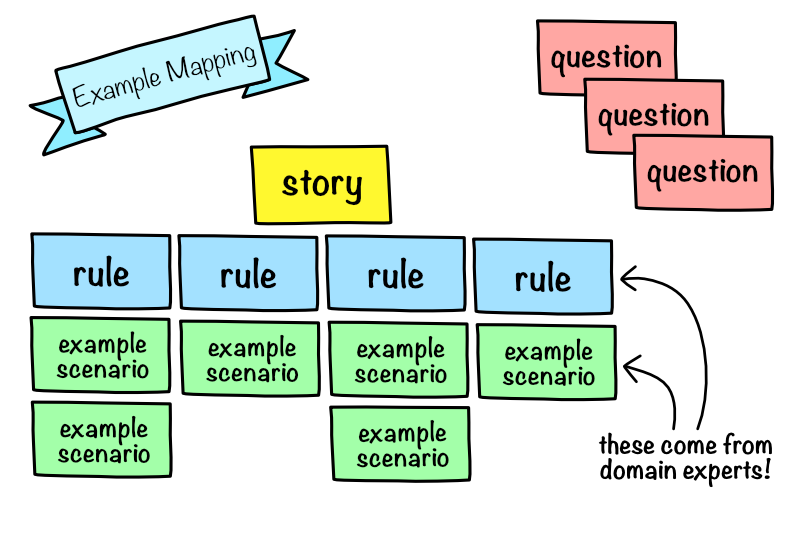Example Mapping
Involving stakeholders in defining acceptance criteria
Jacob See
What Is Example Mapping?
Example mapping is a technique for fleshing out and gaining clarity around the acceptance criteria for a given story. It is based on the idea that multiple examples of specific cases convey information better than a single bad abstraction of a concept.
Why Do Example Mapping?
Example mapping should be used when you have the right people in the room to be able to explain business rules and example scenarios, and a technical team that can ask the right questions about those rules. It should be used as a tool to ensure that the team appropriately understands what is expected of the story, and to get the stakeholders involved in the development of acceptance criteria.
It also brings to light misunderstandings while discussing specific examples of business rules.
How to do Example Mapping?
Example mapping uses four different colors of sticky notes, which are:
- Yellow - for the story itself (as a header for the example map)
- Blue - for specific rules associated with the story
- Green - for examples of rules
- Red - for questions that arise during the discussion
Begin by selecting a story and write it on a yellow sticky note. Place it at the top of your example map as a header. In a horizontal row underneath that, begin writing business rules on blue sticky notes. Beneath the blue business rules, create columns of green sticky notes with individual examples of those business rules. These could be relatively unstructured, Friends-style "The one where..." examples, or full blown Gherkin criteria.
As misunderstandings arise surrounding individual examples or entire business rules, add red stickies with questions written on them if the right people to answer the question or resolve the misunderstanding are not in the room.
When there are enough examples that everyone is comfortable with what is being asked in the story, they can be rewritten as both automated tests and acceptance criteria.
Look at Example Mapping
Links we love
Check out these great links which can help you dive a little deeper into running the Example Mapping practice with your team, customers or stakeholders.
